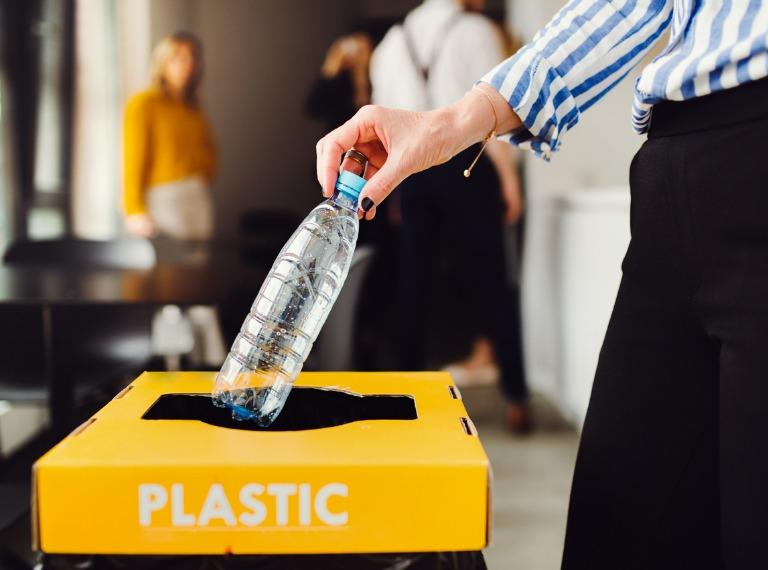In an era where environmental consciousness is on the rise, businesses have a unique opportunity to capitalise on the growing interest in sustainability and eco-friendliness.
While embracing eco-friendly practices is noteworthy and commendable, there have been instances where companies have resorted to misleading tactics to appear more environmentally responsible than they truly are.
This practice, known as greenwashing, may seem like a quick route to attract eco-conscious stakeholders, but it can have severe consequences for businesses if they are found to be lying about their efforts – no matter their size or status.
What is greenwashing?
Greenwashing is a term used to describe a false or misleading action or set of claims made by an organisation about the positive impact their product or service has on the environment.
Corporations guilty of greenwashing can face an influx of legal action for misleading environmental claims.
The UK government recently announced sustainability standards to help crack down on corporate greenwashing. Under the proposed rules, companies will face more pressure to publicly disclose their impact on the climate.
Here are some of the most detrimental effects that greenwashing can have on your organisation:
Loss of trust and credibility
When stakeholders realise a company has been making false or exaggerated claims about its environmental efforts, they often feel betrayed. This can lead to a loss of faith in the brand, its products and services – making it difficult for the business to grow and ultimately regain trust in the future.
In an age where information spreads rapidly through social media and online reviews, a single instance of greenwashing can tarnish a brand's reputation for years. People are becoming more vigilant and are quick to call out deceptive practices, potentially leading to public relations nightmares and a difficult recovery.
Legal consequences
Greenwashing isn't just a public relations concern; it can also lead to significant legal consequences.
Many countries have laws and regulations in place to prevent false advertising and deceptive marketing practices. If a business is caught greenwashing, it could face fines, legal action, and investigations.
Companies, therefore, need to look at the potential implications of product descriptions, stay up to date with legal and regulatory developments, and provide training for marketing teams and boards to ensure their green claims stay relevant with legal standards and public opinion.
Increased scrutiny
In a pro-environment society, any company found to be engaging in greenwashing tactics may also suffer from further scrutiny from stakeholders and regulatory authorities. Once a company is suspected of deceptive practices, people will scrutinise every move they make, from product labels to corporate social responsibility initiatives.
This heightened scrutiny can be exhausting for senior leaders and further damage reputation if any inconsistencies are uncovered.
Regulators may also keep a closer eye on the business, leading to audits and investigations that divert time and resources away from core and strategic operations. When it comes to small and medium-sized enterprises, these types of investigations can be detrimental when resources are limited.
Lost competitive edge
Nothing hurts more than losing out to competitors.
When consumers lose trust in a brand due to false eco-friendly claims, they may turn to competitors they perceive as more authentic and committed to sustainability. This can lead to a loss of market share and revenue.
Companies that genuinely prioritise sustainability and take steps to reduce their environmental impact are likely to gain a competitive advantage over those engaged in greenwashing. Authentic sustainability efforts can be a unique selling point that may attract eco-conscious consumers and set a business apart from the competition.
Environmental harm
Greenwashing can actually cause environmental harm. When companies make false claims about their environmental efforts, consumers may believe they are supporting sustainable practices and continue to buy their products. However, if these claims are baseless, it can result in consumers inadvertently supporting businesses that are not taking meaningful steps toward sustainability.
For example, a company that greenwashes its products may use fewer sustainable materials or manufacturing processes to save money – leading to increased pollution and resource depletion.
This can undermine the credibility of genuine environmental initiatives and make consumers sceptical about the effectiveness of sustainability measures. This doubt can deter people from making eco-friendly choices in their personal lives, negatively contributing to the wider environmental issues trying to be resolved.
Damage to employee morale
While greenwashing is damaging to business practices, it also harms a company’s internal stakeholders – the employees.
When employees are aware their company is engaging in misleading and dishonest practices, it can lead to a sense of disappointment in the brand and decreased morale. Employees who genuinely care about sustainability may feel conflicted about working for a company that is not living up to its environmental claims.
With employee sites like Glassdoor and Trustpilot, businesses caught greenwashing may face backlash from their own workforce, as employees speaking out against the company's practices. This can further damage business reputation and make it difficult to attract and retain talent.
Final thoughts
In order to appeal to environmentally-conscious stakeholders, it's essential to remember that greenwashing is not a sustainable strategy.
While it may provide short-term gains, the negative effects it can have on a business are substantial and long-lasting. Instead, businesses should focus on genuine sustainability efforts and honesty, including transparent communication and building trust with allies.
Looking to expand your team with talented professionals? Contact one of our specialist consultants today.




